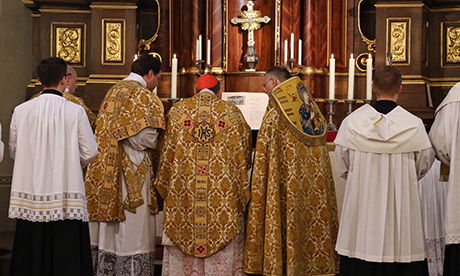A renowned liturgical scholar has criticised the traditionalist approach to Catholic liturgy, stating it diverges from genuine Church tradition and does not strengthen people’s faith.
In an interview with the traditionalist blog “Messa in Latino”, Andrea Grillo, a professor of sacramental theology at the Benedictine University of Sant’Anselmo in Rome, highlighted the importance of unity of faith through the liturgy.
Grillo asserts that while traditionalists claim to be “faithful to Rome” by adhering to the pre-conciliar liturgy, they actually conflict with Rome’s communal liturgical standards.
He stressed “In order to be faithful to Rome, one must adopt a ‘ritual language’ that corresponds to what Rome has communally established”.
Grillo is recognised for his influence on the motu proprio “Traditionis Custodes” issued by Pope Francis.
Traditionis Custodes restricts the use of the 1962 missal addressing the division caused by the pre-conciliar liturgy, re-authorised under certain conditions by Benedict XVI in 2007.
Grillo’s 2020 open letter advocating stricter regulations on the Traditional Latin Mass partially informed this motu proprio.
Rejecting nostalgia in liturgy
Grillo refutes the notion that what was sacred to previous generations should remain sacred today, labelling it as nostalgia.
He argues that this perspective traps the Church in a specific historical period rather than focusing on the essence of faith. He cites the diverse liturgical practices within the Eastern Catholic Churches and regional variants of the Roman rite in Milan and Spain as examples of true tradition that adapts and evolves.
“Nobody would ever come up with the idea that, on a universal level, someone is free to remain in one version of the Roman rite or in the version replaced by a general reform” Grillo states.
Grillo believes that the Church’s crisis cannot be solved by reverting to a “society of honour” – a concept described by Canadian philosopher Charles Taylor as characterised by social hierarchies.
Grillo emphasises that faith is not strengthened by adhering to old customs or languages but by looking towards the future.
“Following Christ does not mean joining a high-society club or association in order to speak a foreign language or to identify with the past and cultivate reactionary ideals” he said.
Sources
Additional readingNews category: World.




